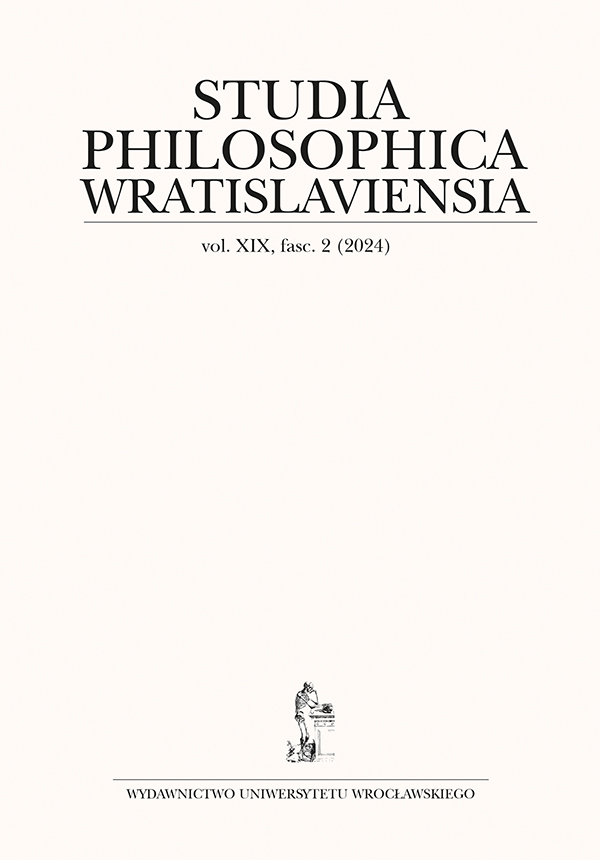

Artykuły

Leszek Kołakowski (1927–2009) is known primarily as a researcher and critic of Marxism. However, his research on the philosophy of religion, especially the Reformation and Counter-Reformation, is less known. The text presents the Polish philosopher’s position on the phenomenon of heresy and orthodoxy, showing the role of both phenomena and their mutual interpenetration. Orthodoxy is a function of heresy, and heresy is a causative function of orthodoxy. The Reformation is considered a reaction to the tension between the religious consciousness of the individual and the social bond built by the institutional Church. The Reformation can therefore be considered an act of building a new quality of bond between the individual and the church institution. In turn, the Counter-Reformation consists in expanding the field of orthodoxy by accepting, in part, what the Reformation had developed. The author proposes to use the Russian term “perestroika” known from the Gorbachev era to refer to the Counter-Reformation. In this sense, counter-reformation can be defined as an attempt to introduce a new quality in the relationship between the individual and the leader, and an attempt to rebuild trust.
Audinet J., Religia, miejsce pojawienia się odmienności, [w:] Encyklopedia religii świata, t. 2. Zagadnienia problemowe, Warszawa 2002.
Blaza M., Czy łatwo zostać heretykiem? „Przegląd Powszechny” (2008), nr 9, s. 57–68.
Gömöri G., Beyond revisionism: Leszek Kolakowski’s recent philosophical development, „TriQuarterly” (1971), nr 22.
Kołakowski L., Chrześcijaństwo, wstęp, wyb. i oprac. H. Czyżewski, Kraków 2019.
Kołakowski L., Herezja, Kraków 2010.
Kołakowski L., Horror metaphysicus, Kraków 2012.
Kołakowski L., Jeśli Boga nie ma... O Bogu, diable, grzechu i innych zmartwieniach tak zwanej filozofii religii, Kraków 2010.
Kołakowski L., Jezus ośmieszony. Esej apologetyczny i sceptyczny, tłum. D. Zańko, Kraków 2014.
Kołakowski L., Notatki o współczesnej kontrreformacji, Warszawa 1962.
Kołakowski L., Świadomość religijna i więź kościelna, Warszawa 2009.
Mentzel M., Jezus, prymas, filozof i pierwszy sekretarz, „Tygodnik Powszechny” (2019), nr 11, https://www.tygodnikpowszechny.pl/jezus-prymas-filozof-i-pierwszy-sekretarz-158004.
Musiał-Kidawa A., Rewizjonista i humanista. Leszek Kołakowski, „Zeszyty Naukowe Politechniki Śląskiej” (2017), z. 100, s. 339–351.
Niemczuk M., Idea chrześcijaństwa bezwyznaniowego Leszka Kołakowskiego, „Folia Philosophica” 11 (1993), s. 113–123.
Pencuła M., Leszek Kołakowski o religii, „Edukacja Filozoficzna” 61 (2016), s. 77–105.
Schwan G., Leszek Kolakowski. Eine marxistische Philosophie der Freiheit, Stuttgart 1971.
Sogrin W., Политическая история современной России. 1985–2001: От Горбачева до Путина, Moskwa, 2001
Tanquerey A., Brevior Synapsis Theologiae Dogmaticae, Parisiis-Tornaci-Romae 1946 (389).
Tillich P., Systematic Theology: The Kingdom of God within History, t. 3, Chicago 1976.
Trocholepszy D., Leszek Kołakowski wobec Boga i Kościoła, „Łódzkie Studia Teologiczne” 26 (2017), nr 3, s. 183–193.